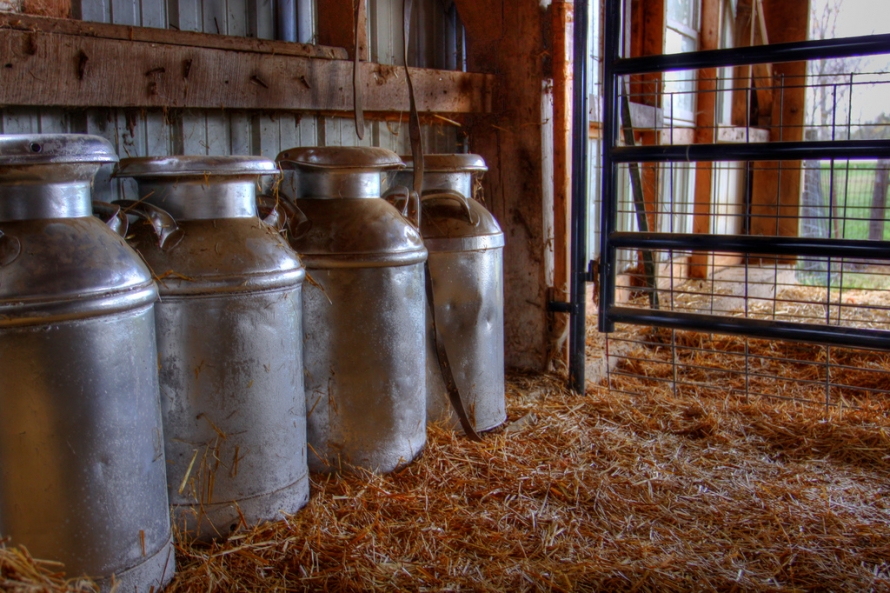While other sectors of food production have yet to feel the impact of Russia’s shut-down of its food importing trade with the leading western nations, they are bracing themselves for it sooner or later. Meanwhile on the Latvian-Russian border all is calm without reports of any problems.
As of Friday, refrigerated commercial transport vehicles were no longer being allowed to cross the border into Russia with their cargoes, trucking association Latvijas auto president Valdis Trēziņš told Latvian Radio (LR) Monday.
“They’re grounded, the refrigerated shipments have in fact stopped. 80% of these loads come from Europe, and they’ve stopped,” he said.
Milk producers are also on the front line of the embargo. Milk intended for the Russian market has already been milked and packaged, but there’s no place to put it, Latvian Dairy Producers’ Association chairman Janis Šolks told LR.
“You understand we can neither stop the flow of milk nor increase it. It’s milked already, so the wholesale price is plunging, especially in Lithuania, so now their milk, which they have no place else to put, is starting to show up here. We’re at the start of this, it’s not really foreseeable how great the impact will be,” the dairy sector spokesman said.
Sandra Stricka of the Cooperation Council of Farmers’ Organizations told national information agency LETA that Lithuania’s dairy producers were quickly breaking existing milk purchasing contracts, with prices dropping rapidly.
Agriculture Minister Janis Duklavs is meeting Monday and Tuesday with dairy cooperatives, processing plant and sector representatives to discuss possible mitigating measures.
Farmers who grow grains or raise livestock haven’t felt any direct effects yet. Their flocks are still grazing, so the impact won’t be known until the meat markets become active.
Fish processing companies are also still awaiting the consequences of the embargo. According to Fish Processing Company Association leader Inārijs Voits, summer is the off-season.
“Usually we’re shut down for repair, maintenance and cleaning, people are on vacations and only get back in August or September, our product line only starts hitting demand by October,” Voits pointed out.
So far no incidents at border and customs checkpoints have been reported. Latvian Customs officials have issued timely warnings to truckers of the risks of their cargoes being turned back by the Russians. Altogether 14 loads have been denied entry into Russia.
Last year the categories of products now banned from importing into Russia comprised €52m. Meanwhile the commercial transport sector estimates losses to the refrigerated trucking business to cost many tens of millions of euros.





























